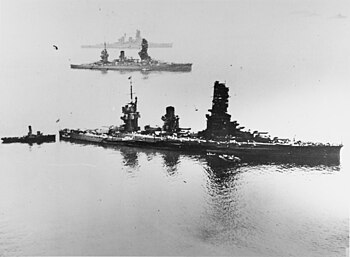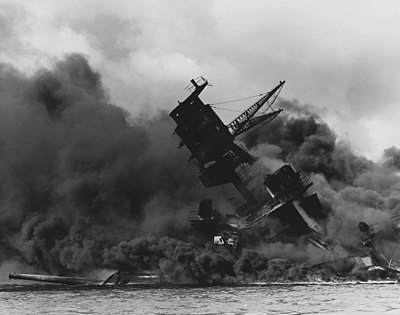Mistakes of World War 2
- Causes of the War
- The Mistakes of 1939-1940
- The Mistakes of 1941
- The Mistakes of 1942
- The Mistakes of 1943-1945
 |
| Winston Churchill, Prime Minister of Great Britain |
In 1941 the world was plunged into one of the largest wars in human history. The Axis - Germany, Italy and later Japan were succeeding in their attacks on the Allies - Great Britain and the Soviet Union. But by 1941 the Axis had already thrown away their best chance, although a slim one, of ultimate victory. In 1940 Germany had not pressed its attacks on Britain, instead it had attacked the Soviet Union. In 1941 the Axis continued to make mistakes which caused them to loose even more chances of victory. Germany’s made the mistake of failing in their attempt to defeat Russia. But the Axis’ greatest mistake was causing the United States to join the war. That defeated their last chances for survival. When the United States declared war, the Allies had twice the men as the Axis, and more industrial capability. Forcing the USA to join the war was the greatest mistake of 1941. All the rest were minor compared to it.
 |
| Russian tanks and soldiers |
Russia
Last time we talked about Hitler’s mistake of declaring war on the Soviet Union. He made a big mistake when he decided to declare war on Russia while he was still fighting Britain. The Soviets were willing to join Germany as allies, and if this had happened they would have had a much better chance of ultimate victory. Hitler’s mistakes did not end when he decided to attack Russia. The attack was launched on June 22nd 1941. It was the largest attack in known military history, with 4.5 million Axis soldiers attacking along a 1,800 mile front. The Russians, who thought that they were about to become Germany’s allies, were caught completely by surprise. The German attack was initially successful. They captured 300 miles of Russian territory, and many soldiers. But in July, Hitler, against the advice of his generals, decided to delay the attack on Moscow, where the main Russian army was, and instead attempt to capture Leningrad in the north and the Russian oil fields in the south. This was a mistake. They were not able to capture Leningrad, and when they turned to attack Moscow they were not able to capture it either because of the delay.
 |
| Russian troops advance against the Germans in winter conditions |
The Soviets had several great advantages. First they had a huge amount of territory. “Only vast Russia had the supreme advantage of Depth; and this was once again to prove her salvation.”1 Second they had the winter. Napoleon in 1812 was defeated by the Russian winter, and Hitler suffered the same demise. The Germans were not prepared for the snow and cold. Third, they had almost immeasurable reserves of manpower, which although untrained and unarmed, could eventually be turned into soldiers. Through these advantages and Hitler’s mistake mentioned earlier the Germans were not able to conquer the Soviet Union.
America
Hitler’s policy before and during WW2 was “one at a time.” He would only attack one nation at a time, thus preventing other nations from banding together with them. In this way he was able to easily defeat nations that would have been much more difficult if they had been able to band together. This was what he did to the United States. Eventually he would have attacked them, but he did not want to declare war on them until he had defeated the British Empire and the Soviet Union. Since the US Constitution requires that the President get the Congress to declare war, President Roosevelt was not able to get the Congress to declare war on the Axis until they were actually attacked. Even though they were supposed to be neutral, the USA still helped the British massively by giving them huge amounts of munitions. Germany, however, just ignored this because they did not want to fight the United States until they were done with Britain and the Soviet Union. As Churchill said, “[Hitler] always dreaded the consequences of war with the United States, and insisted that German forces should avoid provocative action.”2
 |
| Japanese battleships |
But then in 1941 Japan decided that the Axis was going to win the war, so they wanted to join on their side. Japan’s targets were the eastern holdings of Britain, the Netherlands and also the United States. Japan decided that it needed to strike the United States pacific fleet stationed in Pearl Harbor so that they would not be able to resist Japanese conquests. They wrongly thought that if they attacked Britain’s colonies in the east the American fleet would attack them. This would probably not have happened. Hitler disagreed with Japan’s decision to attack the US. He thought that they should first attack and capture the British and Dutch colonies, then attack the United States. “[Germany] urged the Japanese Government to strike without delay at Malaya and Singapore and not to bother about the United States. Hitler had already enough on his shoulders without drawing them in.”3 Winston Churchill, the leader of the English Empire said, “My deepest fear was that the Japanese would attack us or the Dutch, and that constitutional difficulties would prevent the United States from declaring war.”4
Compared to the United States, Japan was nothing. Bringing in Japan on their side and the United States on the other would hurt the Axis greatly. Japan was temporarily in a better position because they were ready for war and closer to where the battles would be fought, but ultimately their strength was not even close to America’s. Churchill said this before Japan attacked,
Viewing the vast, sombre scene as dispassionately as possible, it would seem a very hazardous adventure for the Japanese people to plunge quite needlessly into a world struggle in which they may well find themselves opposed in the Pacific by States whose populations comprise nearly three-quarters of the human race. If steel is the basic foundation of modern war, it would be rather dangerous for a Power like Japan, whose steel production is only about seven million tons a year, to provoke quite gratuitously a struggle with the United states, whose steel production is now about ninety millions; and this would take no account of the powerful contribution which the British Empire can make.5
The Japanese did not listen to Hitler, and continued to prepare their attack on Pearl Harbor. They struck without warning on December 7th, 1941. Their attack was mostly successful. Four American battleships were sunk, the other four were disabled. Almost 200 aircraft were destroyed, and 150 more damaged. But even though America’s navy was severally damaged, it still had many more resources than the Japanese. After the attack Germany, Japan and Italy declared war on the United States; Britain declared war on Japan and the United States declared war on Japan, Germany and Italy.
 |
| Japanese Planes attack Pearl Harbor |
[N]ow at this very moment I knew the United States was in the war, up to the neck and in to the death. So we had won after all! … We had won the war. England would live; Britain would live; the Commonwealth of Nations and the Empire would live. How long the war would last or in what fashion it would end no man could tell, nor did I at this moment care. … Hitler’s fate was sealed. Mussolini’s fate was sealed. As for the Japanese, they would be ground to powder. All the rest was merely the proper application of overwhelming force. The British Empire, the Soviet Union, and now the United States, … were, according to my lights, twice or even thrice the force of their antagonists. No doubt it would take a long time. … [B]ut all this would be merely a passing phase. United we could subdue everybody else in the world. May disasters, immeasurable cost and tribulation lay ahead, but there was no more doubt about the end.6Winston Churchill turned out to be right. The Axis was not able to defeat the combined strength of the United States, Great Britain and the Soviet Union. Japan’s attack on the United States combined with Germany’s failed attack on Russia destroyed the Axis’ chances for final victory.
 |
| USS Arizona burns after the Japanese attack on Pearl Harbor |
1 Churchill, Winston. The Second World War. (London: Cassell & Co. Ltd 1948) volume 3, volume 3, p. 338
2 Ibid, p. 126
3 Ibid, p. 160
4 Ibid, p. 534
5 Ibid, p. 528-529
6 Ibid, p. 539-540




2 comments:
the Evil Empire: religion, armies, monarchies and politicians...are the causers of all wars
(2)...interstellar travel (immortality comes)...the nationalist innoncent people stuck in the inertia of "their" nation, "their" land, "their" language...let themselves drive obediently by the trail of ignorance towards the deadly and muddy trenches with the story of "patriotism". Nations, Wars and Frontiers: the great business of the jeweled "leaders". Already there are (before, to avoid migrations by inequality, was climbed by the same the standard life level throughout the Planet, it was easy) 1 only united Planet without Nations, without Wars and without Frontiers (cities only), with only 1 World Government, 1 single Flag and 1 single World Army without "superiors", already nobody put oneself by military order: "attention!". Already there are not, according to "leader" is in the power, "traitors" of today, "heroes" of tomorrow and vice versa. Already there are not innocent people who cry when listening to "their" nationalist anthem at sporting events. Already there are not technological peoples who called "slaves souls" to the agricultural peoples. There is finally a basic fair distribution of the Goods of the Earth, according to their worth or inheritance each on manages to increase their own wealth...already there are not poor, nor ignorant... Already there are not religión "festivities", they have transformed into True Human Festivities. Is eradicated the religious deception of counting Time and is selected... (a Planetary Convention to select forever the true beginning of the History... 30,000 "b.c." (-25,500) first Cave Paintings... 15,000 "b.c." (-10,500) first Written Testimonies, some straight lines representing each line number 1... 10,000 "b.c. (-5,500) Agriculture starts... 8,000 "b.c." (-3,500) first City... 4,500 "b.c." (Year One) begins the Bronze Ages...)...
Post a Comment